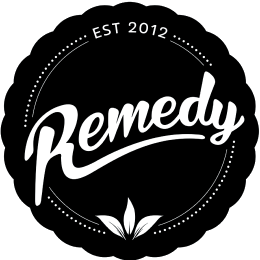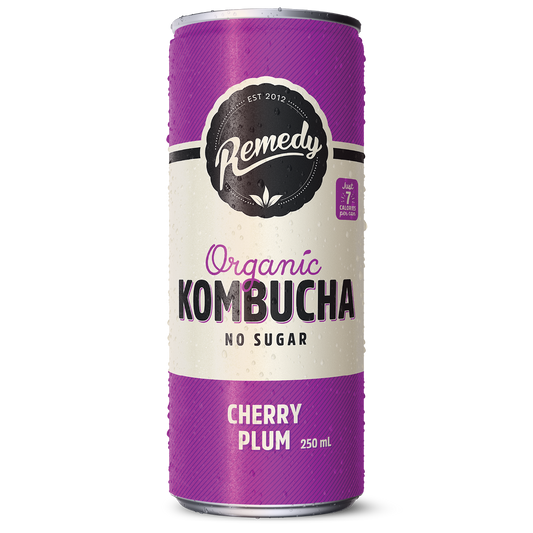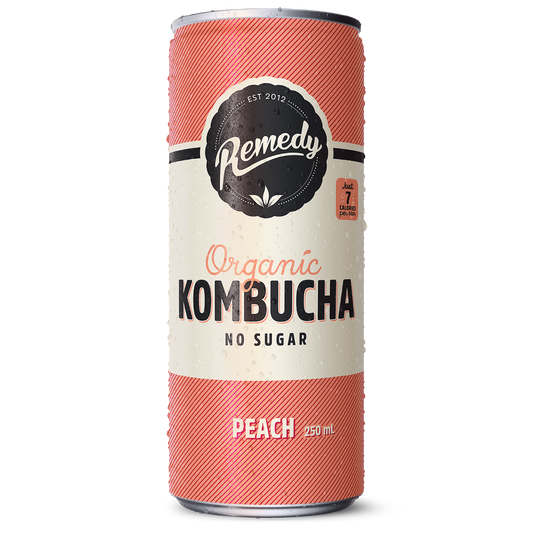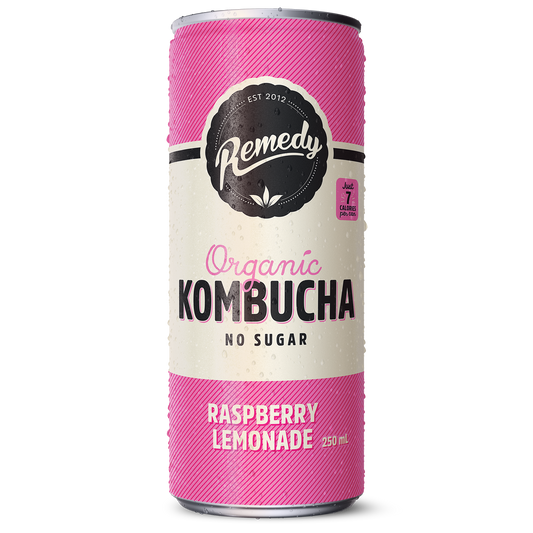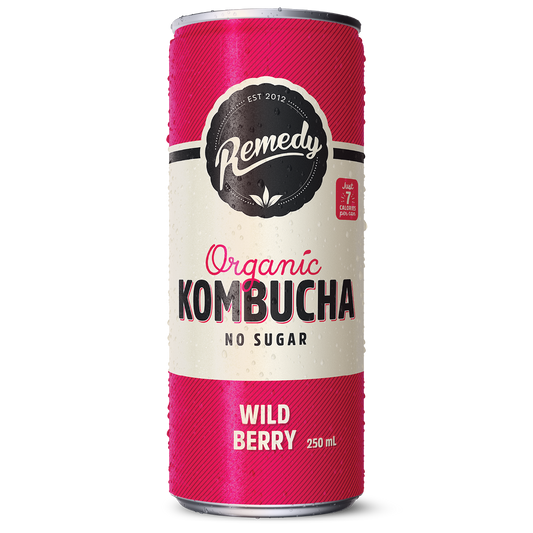In case you missed the low down on how to brew kombucha, organic acids are one of the main things that come out of our 30 day brew.
But let's get down to the nitty gritty and explain what organic acids are and why we're low key obsessed with them in our booch.
What are organic acids?
When brewing Remedy Kombucha, it’s not just magic that leads to a delicious drink with no sugar naturally, but fermentation science!
You see, the live culture is what consumes all the sugar, but in the process it doesn’t just disappear, it gets converted into healthy organic acids. These are also known as short-chain fatty acids (SCFAs), the very same kind produced by our own gut bacteria to aid important body processes.
What can organic acids help with?
Organic acids can potentially help to:
- Provide an energy source for the good bacteria in your gut
- Regulate appetite
- Stabilise blood sugar levels
- Regulate cholesterol
- Prevent overgrowth of bad bugs in your gut
How much organic acid is in Remedy Kombucha?
In every 330ml of Remedy Kombucha, you will enjoy 0.7g of naturally occurring organic acid.
How can you tell if your kombucha is chock-full of organic acids?
First of all, taste. The organic acid is what gives Remedy bevvies that subtle tang and good-for-you-but-still-so-damn-tasty flavour. Watch out for any kombucha or other drink that claims to be fermented without some tang - that's how you know they're brewin' the old school way, and you're gettin' the goodness of organic acids.
